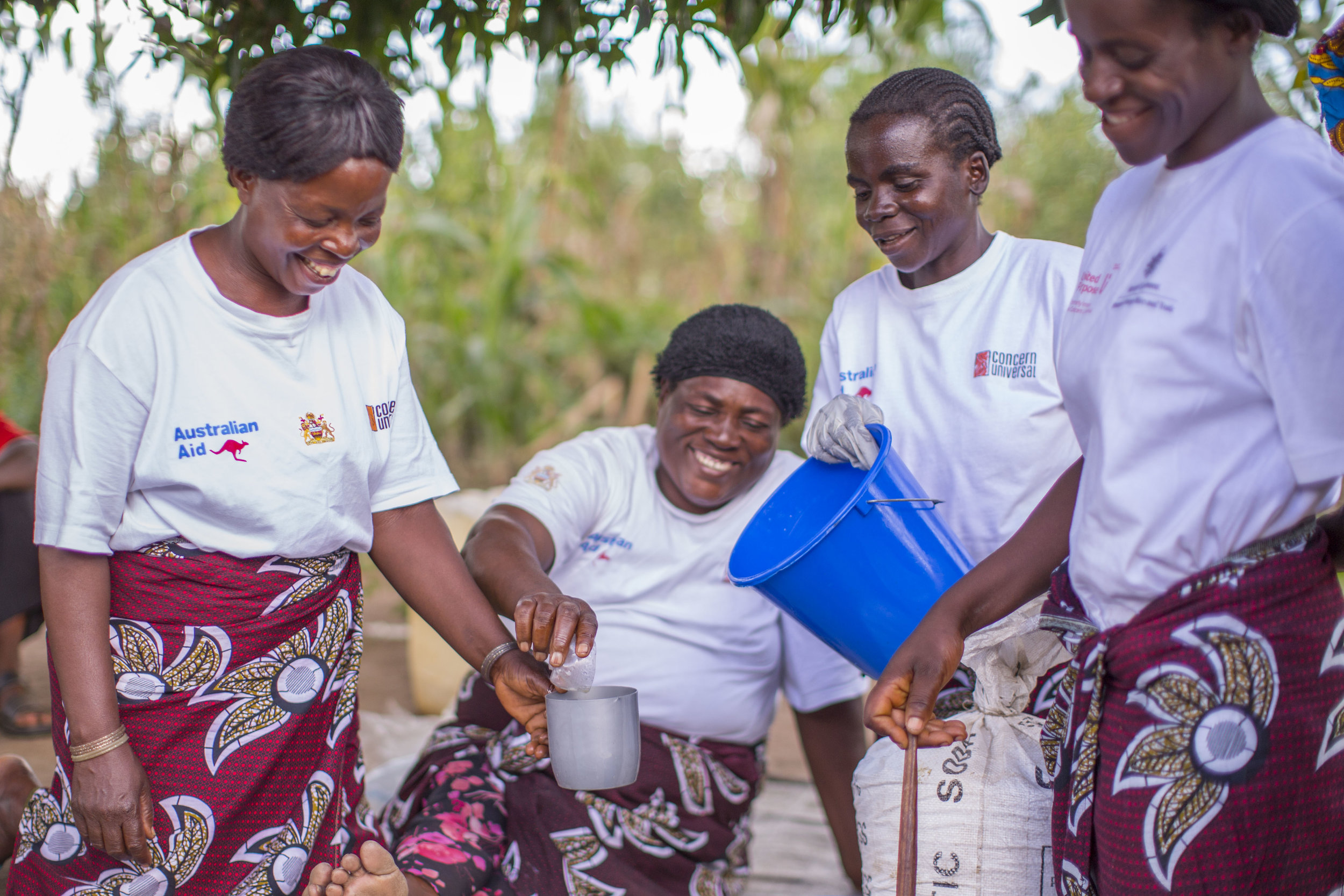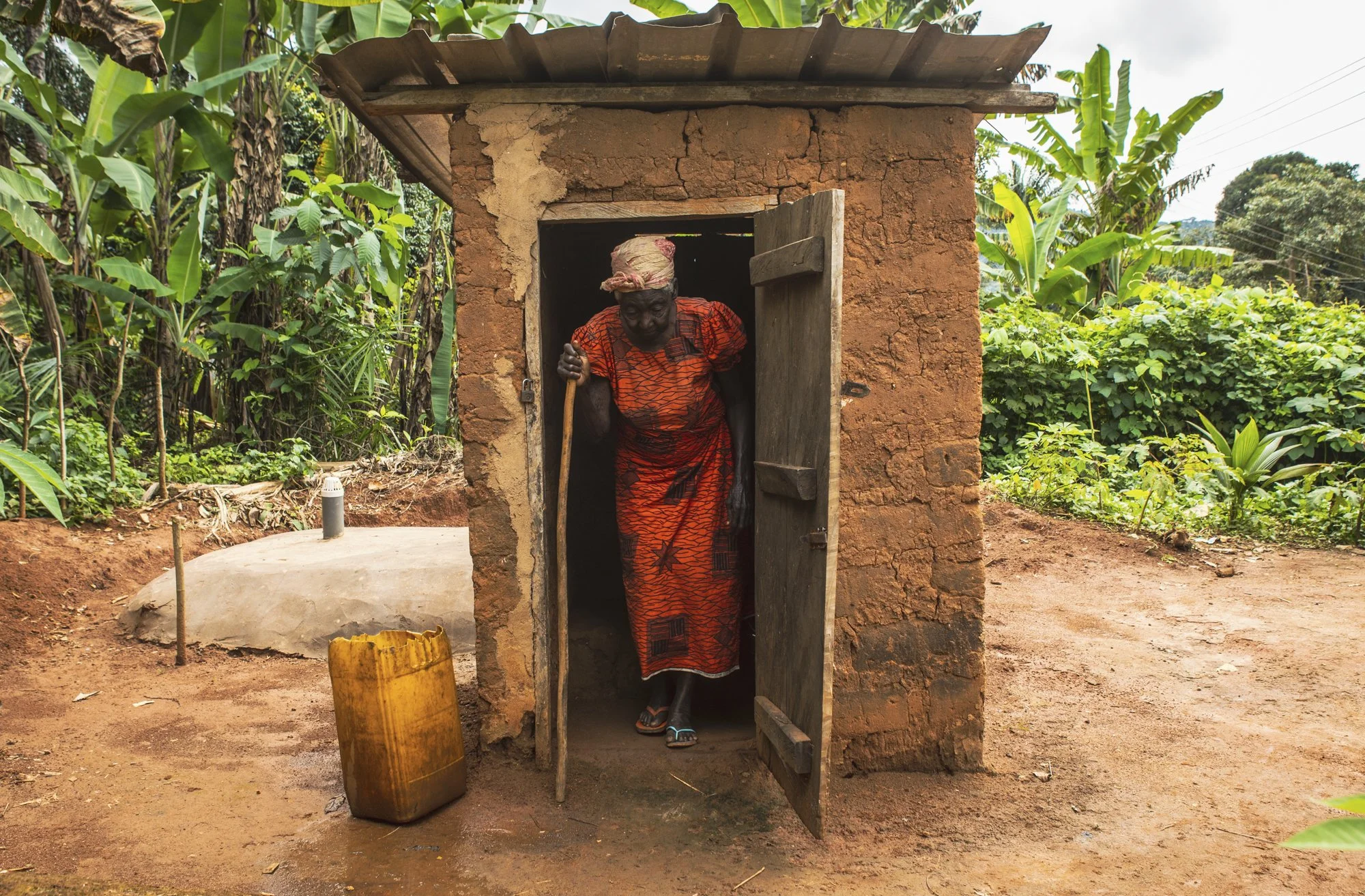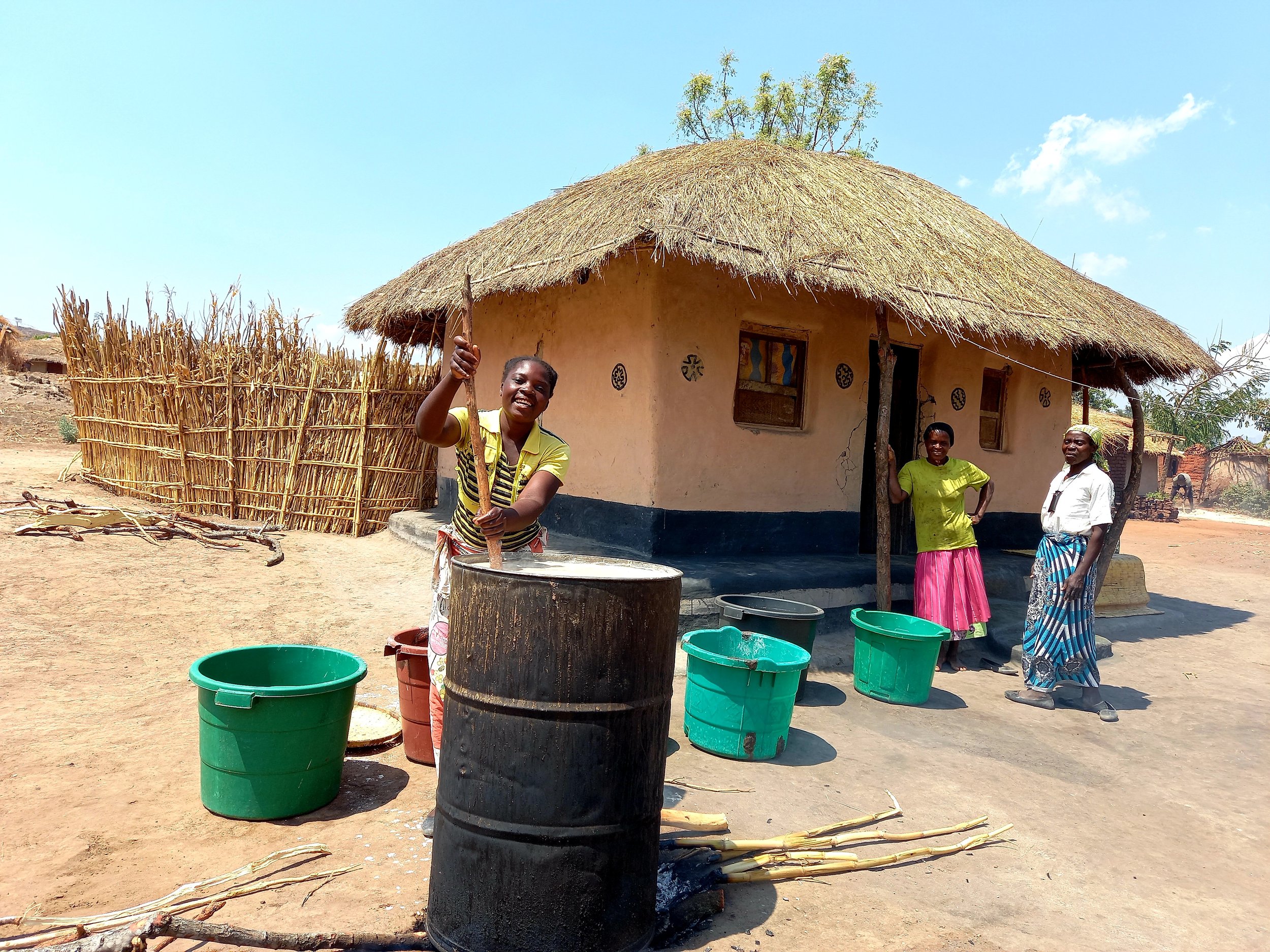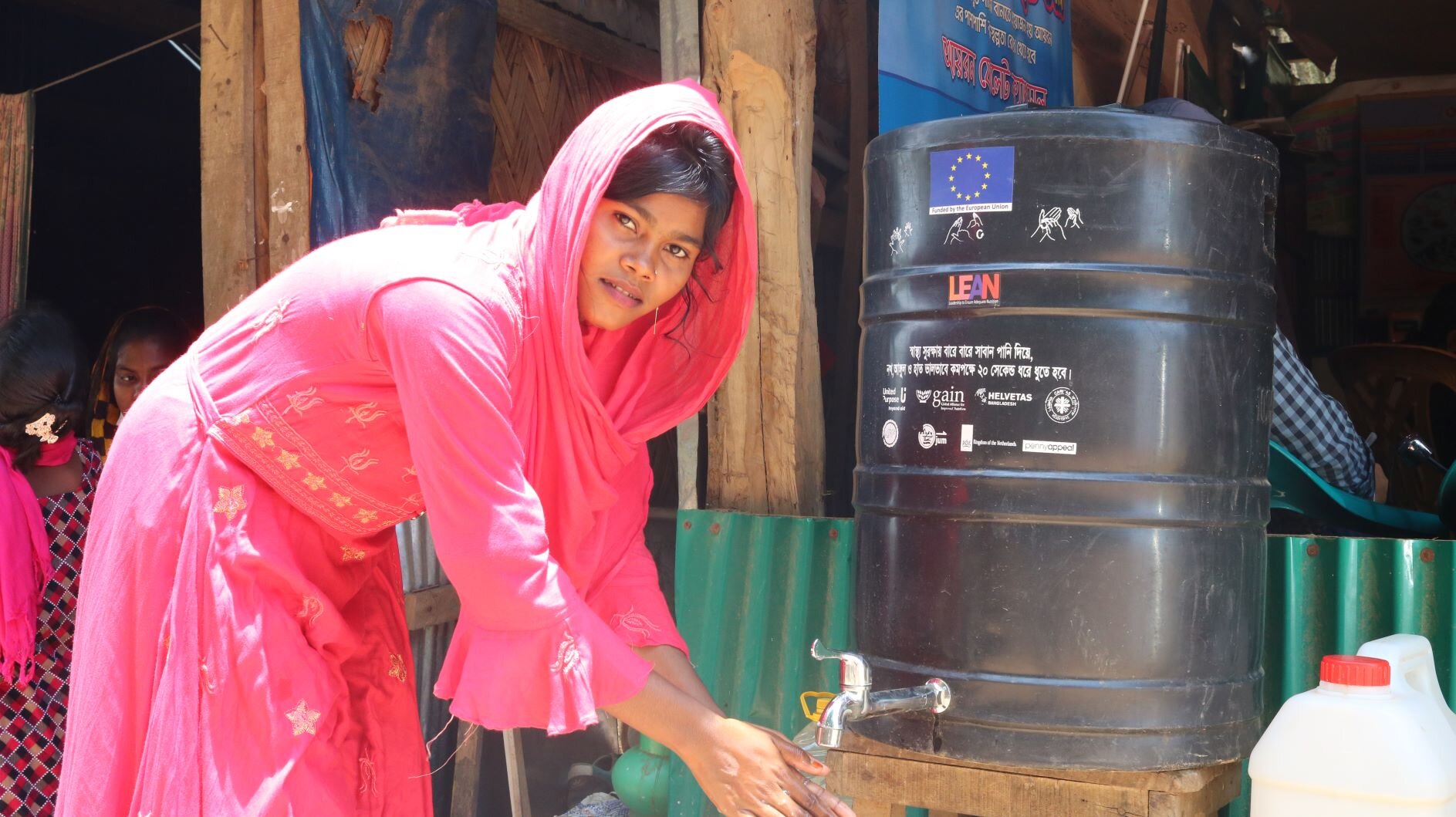In June, our four year Water, Sanitation and Hygiene (WASH) project in Phalombe district, in the Southern Region of Malawi came to an end. Since the project began, we’ve seen a massive 77% decrease in cases of cholera, diarrhoea and dysentery in the area.
In light of this big win, we caught up with Maxwell Chiputula, Manager of the project, to reflect on the successes of our unique Civil Society approach.
Maxwell Chiputula, WASH project manager
UP: What were the main aims of the Civil Society WASH programme? How many people has it reached?
Maxwell: UP's project aimed to enhance the health and quality of life of 212,000 poor and vulnerable people in Phalombe district and to reduce reported cases of diarrhoea by 60% over four years.
We really wanted to increase the effectiveness of existing local community and government structures, rather than using the approaches of traditional WASH programmes. Providing the support, knowledge and skills they needed, we hoped to enable the local community to plan, manage and fund the enhancements they wanted to make to local water, health and hygiene services.
What were some of the typical WASH challenges faced by rural people in Phalombe?
In 2014 when the project started, safe water and effective sanitation services were falling short – 40% of water boreholes were out of action, which meant that 73,500 people had no access to safe water.
The situation was worsened by a lack of monitoring mechanisms, and patchy data meant that water resources weren’t distributed evenly. There were two databases – in the District Health Office and District Water Office – but they weren't linked, so it was very difficult to plan and coordinate any valuable improvements to WASH services.
Of the 87 schools in the district, 82 had basic pit toilets, and the number of pupils per toilet was far above government recommendations. Unfortunately, this disproportionately affected girls as there were no dedicated menstrual hygiene facilities in any of Phalombe’s schools.
People in Phalombe also tended not to use it to wash their hands, as soap is quite expensive in rural Malawian communities. There were some community members using ash as an abrasive for handwashing, which is good for removing dirt, but it has no anti-bacterial properties.
You take a ‘Community-Led Total Sanitation' approach to stop people from going to the toilet in the open. What is this and why is it so effective?
The harmful practice of defecating in the open only stops when the whole community recognises the major public health risks it causes, like diarrhoea, cholera and infant mortality.
The effectiveness of the ‘Community Led Total Sanitation’ approach lies in is what we call the ‘triggering’ of the community. By gathering people together to witness a demonstration showing how easy it is for faecal matter to contaminate water and food sources, they are inspired to conduct their own assessment and create an action plan to end open defecation, without any external interference or funding.
In pictures: Community members gather for a 'Triggering' demonstration. Through the process they gain an understanding of the issues caused by open defecation and how easy it is for food to become contaminated (bottom right).
After the demonstration, the communities then use their own resources to establish action committees and appoint natural leaders, develop innovative low-cost technologies, monitor progress, and ensure that all households adopt safe and hygienic defecation practices.
By ‘triggering’ a revelation, a shift in the mind-set of the community, disgust at the practice becomes collectively reinforced – and that’s what makes the change so long-lasting.
How has the programme changed people’s lives for the better?
We’ve seen real improvements in so many different areas of the project. Over 100,000 people in Phalombe now have access to safe water and confidence in its sustainability. Having repaired, upgraded or constructed new boreholes, the project has developed 402 working waterpoints, each with a fully trained village-based committee that ensures the pumps and boreholes are maintained.
New school toilet blocks have improved menstrual hygiene for girls.
In schools, basic pits have been replaced with brick toilet blocks, and almost three quarters of schools are hitting the recommended to pupil to toilet ratio. Most significantly, facilities were installed for girls to have a safe space to change during their periods. We also trained Mother’s Groups to support girls to understand the menstrual process and the best way to manage hygiene. With their support, we saw a considerable reduction in absenteeism and increased school attendance for girls.
Kaduya Traditional Authority gains ODF status.
One of the major successes of the project has been the declaration of Jenala Traditional Authority (TA) – one of Phalombe’s seven TAs – as entirely ‘Open Defecation Free’. Over 153 smaller communities in the district ended open defecation too, inching Phalombe one step closer to being entirely free of the harmful practice.
A jatropha soap committee make a batch of soap.
We've also seen the increased participation of women and marginalised groups in WASH-related activities, including in newly established soap-making enterprises. We trained women’s committees to grow jatropha seeds and use them to make soap. These seeds have anti-bacterial properties and the soap can be sold at affordable prices within the community. This has contributed to the area-wide increase in hand washing with soap.
All of this has significantly contributed to a target-breaking 77% reduction of cholera, diarrhoea and dysentery, and there hasn’t been a single case of cholera registered since 2016.
Find out more:
Watch this short video on the transformative work of the Civil Society programme in action.



















